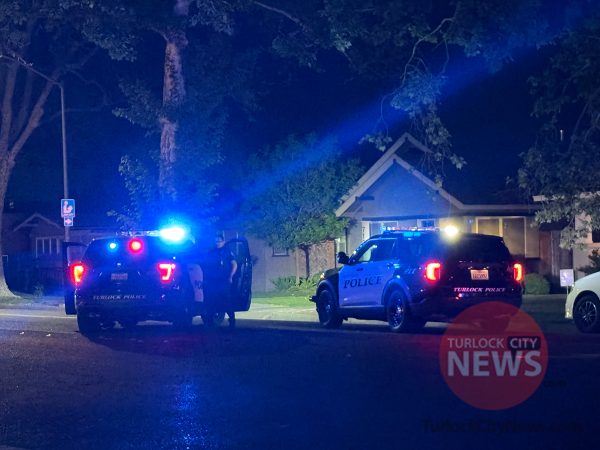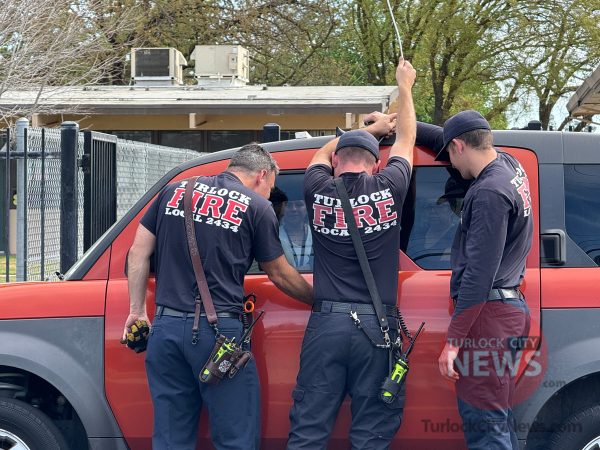The Turlock City Council worked toward complying with a State law, Senate Bill 2, that allows homeless shelters to open in a designated area without going through a discretionary permitting process.
SB 2 requires that all cities and counties establish a zoning district or area that will allow one or more homeless shelters, satisfying the community’s needs, to be established through a more expedited permitting process.
SB 2 does not require local governments to build or operate a homeless shelter, but that they allow for one and without a discretionary process that may hinder the opening of one.
At the February 8, 2011 Special Joint Meeting of the Turlock City Council and Turlock Planning Commission, City Staff was seeking input and direction on the potential zoning district or zoning overlay boundary, as well as the development standards that would be established for each zoning district in Turlock in accordance with SB 2.
Turlock Planning Commission Chair Mike Brem questioned what the consequences will be for noncompliance of SB 2.
City Planner Debbie Whitmore explained that the City is required by the State to have a housing plan, which is also included in the General Plan, and noncompliance would affect the approval of the housing plan and may jeopardize State funding received or applied for by the City of Turlock.
The purpose of the workshop was to ensure that the general direction outlined by staff was acceptable to the policy-makers and allowing staff to begin working with the Planning Commission on a more extensive public involvement process to develop a zoning ordinance amendment that would be approved later in the year.
There have been community workshops and meetings involving service care providers, those who work with the homeless, and others who feel they may be impacted by the location of a homeless shelter. From those meetings, the last being held on February 18, 2010, City Staff collected information from the public and presented them to the Turlock City Council and Planning Commission.
City Staff defined a study area that would include the general boundaries of West Main St. along the north, Tully Rd. and Soderquist Rd. on the west, Linwood on the south, and Center Street on most eastern side.
Discussion between the Turlock Planning commission and Turlock City Council led to the exclusion of residential zoned property unless it was ultimately needed to meet the community’s need goal.
As far as having sufficient capacity to meet the community’s need, City Staff proposed that a total of 100 beds would be covered by the nondiscretionary permitting process, and once that amount was reached then all other homeless shelter additions would be required to go through a discretionary Conditional Use Permit process.
Turlock Gospel Mission Board Member, Chris Kiriakou, felt that the 100 bed “trigger” was too low as he pointed out that the homeless needs being served currently totaled over 150 different people.
“We Care so far has had 93 unduplicated men in December and January… Turlock Gospel Mission has had 60 unduplicated women and children,” said Kiriakou. “We suggest that the trigger point of 100 be moved up, as a starting point, we’re suggesting that number be 200.”
Kiriakou addressed concerns of raising City Staff’s recommended limitation of 40 beds per homeless shelter location in Industrial-Residential zoning to 100 beds and that the requirement of hiring security guards is looked at to allow for alternative security solutions that are not as costly.
Maris Sturtevant who heads up the We Care program agreed with Kiriakou in that the current need is already over the 100 beds City Staff had deemed sufficient to meet the community’s need.
“We were turning people away,” Sturtevant said. “In the shelter on Broadway, we’re limited to 34 men a night; at this point we have turned away over 35 men.”
Sturtevant also had issue with the Turlock Police Department requirement of hiring security guards because We Care spends about $16,000 on two security guards with four hour minimum shifts (demanded by security companies) when they probably only need to hire guards for two hours.
Turlock Police Chief Gary Hampton clarified that the Turlock Police Department’s recommendation does not state that a security guard company must be hired but just that there is a licensed security guard and that he would be willing to look at any alternatives presented by the service providers. Hampton also stated that the Turlock Police, We Care, and Turlock Gospel Mission have a good system currently in place and that there are not problems between the agencies or with their facilities.
Maris Sturtevant added that the downtown area south of City Hall should be included in the study area because that is where some of the current service providers are located.
Councilwoman Mary Jackson agreed with the speakers that the limit of beds covered under the nondiscretionary permitting process be set at 200, that City Staff’s recommended 40 beds per homeless shelter located in the Industrial-Residential zone is increased to 100 beds, and that the downtown area south of City Hall is included in the study area.
Councilwoman Jackson also noted that she felt the requirement calling for 1 parking space for every 5 people seems too high.
The Turlock City Council unanimously voted to approve Councilwoman Amy Bublak’s motion directing City Staff and the Turlock Planning Commission to study the area presented without including residential unless it was ultimately needed to meet the community’s need, and increasing the bed numbers as stated.
The Turlock Planning Commission and City Planning Staff will begin working on a formalized proposal of zoning and operation requirements to Council while taking into consideration Council’s direction and collecting community input during upcoming public workshop meetings.






